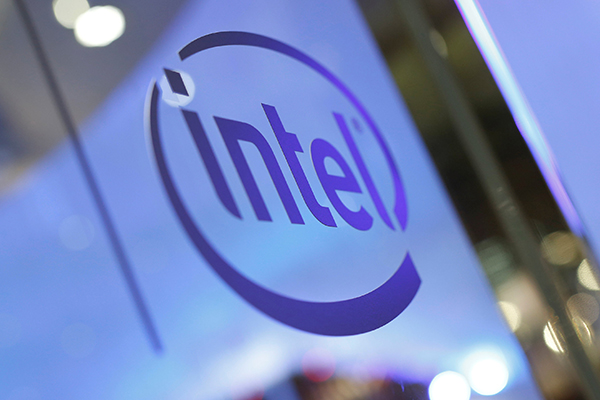 |
|
The logo of Intel is seen during the annual Computex computer exhibition in Taipei, June 1, 2016. [Photo/Agencies] |
Intel Corp's upgraded chip factory in Dalian, Liaoning province, will help it better tap into China's growing demand for memory chips, but the United States giant needs to be wary of rising competition from local rivals, as the country speeds up efforts to reduce its reliance on foreign technology, experts said.
The Dalian plant, in which Intel said it would invest $5.5 billion, has been converted to produce advanced memory chips such as 3D NAND chips, which can store data without using power and be widely used in smartphones and tablets.
Roger Sheng, research director at consultancy Gartner Inc, said as an increasing number of consumers prefer digital devices with bigger storage capacities, the supply of 3D NAND chips is currently failing to catch up with the growing demand.
"The Dalian plant will give Intel an upper hand in pouncing at the strategic opportunity," Sheng said.
"Mass production of 3D NAND chips will help lower the cost and promote the development of the global semiconductor industry."
Intel said the Dalian facility has formally gone into operation late in the second quarter of the year, ahead of schedule. It was one of the largest investments made by Intel in China and part of its efforts to seek new revenue streams while its main PC chip business faltered.
The company did not disclose the plant's annual production capacity.
Intel's move came as chips are becoming national strategic assets almost as valuable as oil. Researcher TrendForce estimated China consumed $6.67 billion worth of NAND chips in 2015, or 29 percent of global NAND industry revenue.
Fu Liang, an independent industry expert, said Intel will need to fight off competitions from local players, as China is ramping up resources to cultivate homegrown chip giants.
China's largest chipmaker Tsinghua Unigroup Ltd said earlier it will invest $30 billion into making memory chips.
